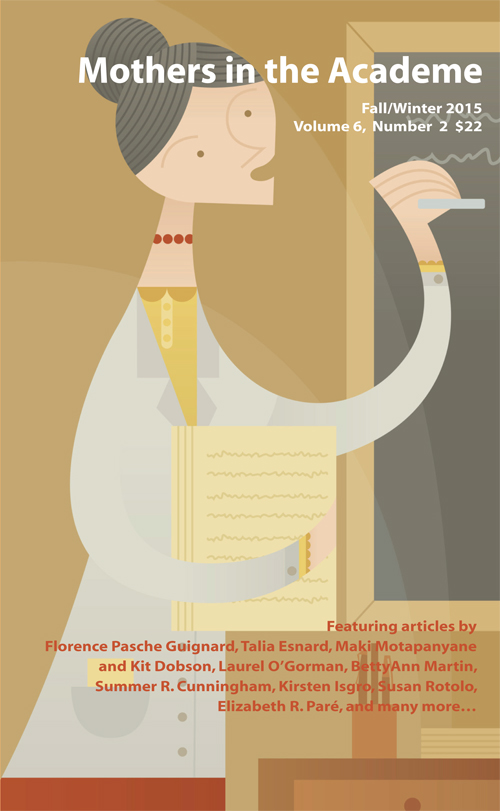Motherhood in U.S. Academe: How the Presence of Women Disrupts the Ideal Worker Model in Colleges and Universities
Abstract
In this article, I consider the myth of the ideal worker and the consequences of that myth for mothers. Behind the constant juggling necessary to be successful professionally as an academic mother is the unstated assumption that a woman’s caregiving role should be her primary, essential commitment, and women graduate students and early-career academics have to think strategically about how family fits into the institution of academe. Rendering invisible the whole-person needs of workers, but especially women and mothers, academe assumes an ideal worker unencumbered by family or other life constraints. My interviews with tenured women academic sociologists provide an institutional standpoint for understanding workplace needs of parents. Towards positive change, university policies must be coupled with department and colleague support because workplace climates are experienced by individuals at an intersection of institutional policies and interpersonal interactions. Colleagues must not be expected to “take up the slack” for mothers asking for time off for family leave; nor should departmental intransigence be allowed to interrupt an administration’s efforts to institute flexible policies. There is positive potential in mothers’ increased visibility in academe, but it will only be realized through active public support from colleagues and administrators, alike.Downloads
How to Cite
Issue
Section
License
All intellectual property in relation to material included on this site belongs to the Motherhood Initiative for Research and Community Involvement (MIRCI). All material on this site is protected by Canadian and international copyright and other intellectual property laws. Users may not do anything which interferes with or breaches those laws or the intellectual property rights in the material. All materials on the Motherhood Initiative for Research and Community Involvement (MIRCI) are copyrighted and all rights are reserved. Any reproduction, modification, publication, transmission, transfer, sale, distribution, display or exploitation of the information, in any form or by any means, or its storage in a retrieval system, whether in whole or in part, without the express written permission of the Motherhood Initiative for Research and Community Involvement (MIRCI) is prohibited. Please contact us for permission to reproduce any of our materials. This site may include third party content which is subject to that third party's terms and conditions of use.


